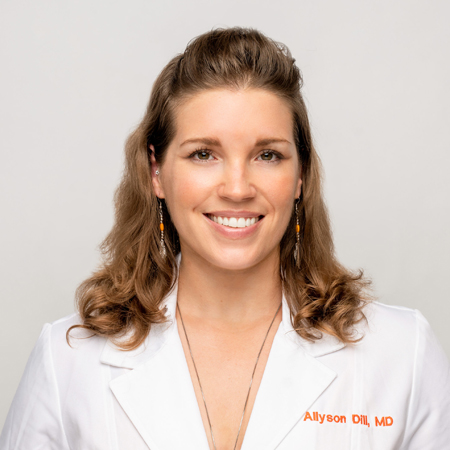Why GetSkinHelp

Fast Appointments
No more waiting months and months.

Video Consultation with doctors
No more taking an afternoon off to speak with a doctor.

Covered by OHIP and private insurers
Next steps
Scheduling an appointment on GetSkinHelp is as easy as these 5 simple steps.

step 1
Use your phone to take three pictures of your skin condition.
Read More

step 2
Complete your medical history and personal details through our web portal.
Read More

step 3
You will get an email within 1-2 business day asking that you confirm your appointment and a more complete medical history.
Read More
Submitting your medical history ahead of time helps the doctor better prepare for your appointment.

step 4
Click on the BANTY link you received at least 5 minutes before your appointment to sign-in.
Read More
1) Unlike Zoom (and many other platforms), BANTY is certified by the Ontario government as a secure virtual health platform.
2) Those on mobile will need to download the Banty App prior to their appointment.

step 5
You and your doctor will develop next steps for your skin health plan.
Read More
Do not hesitate to tell your friends and family how GetSkinHelp makes it easy to control your skin health.

step 1
Use your phone to take three pictures of your skin condition.
Read More

step 2
Complete your medical history and personal details through our web portal.
Read More

step 3
You will get an email within 1-2 business day asking that you confirm your appointment and a more complete medical history.
Read More
Submitting your medical history ahead of time helps the doctor better prepare for your appointment.

step 4
Click on the BANTY link you received at least 5 minutes before your appointment to sign-in.
Read More
1) Unlike Zoom (and many other platforms), BANTY is certified by the Ontario government as a secure virtual health platform.
2) Those on mobile will need to download the Banty App prior to their appointment.

step 5
You and your doctor will develop next steps for your skin health plan.
Read More
Do not hesitate to tell your friends and family how GetSkinHelp makes it easy to control your skin health.

step 1
Use your phone to take three pictures of your skin condition.
Read More

step 2
Complete your medical history and personal details through our web portal.
Read More
We will need your personal details, Health Card Number, and your skin concern.

step 3
You will get an email within 1-2 business day asking that you confirm your appointment and a more complete medical history.
Read More
Submitting your medical history ahead of time helps the doctor better prepare for your appointment.

step 4
Click on the BANTY link you received at least 5 minutes before your appointment to sign-in.
Read More
1) Unlike Zoom (and many other platforms), BANTY is certified by the Ontario government as a secure virtual health platform.
2) Those on mobile will need to download the Banty App prior to their appointment.

step 5
You and your doctor will develop next steps for your skin health plan.
Read More
Do not hesitate to tell your friends and family how GetSkinHelp makes it easy to control your skin health.
Common Skin Conditions
Acne is a skin condition caused by hair follicles getting clogged with oil and dead skin cells.
This clogging leads to the hallmark formations of acne (blackheads, whiteheads, pimples, and nodules).
Hives are itchy welts on the surface of your skin, typically caused by allergic reaction.
Most hives go away on their own, but can occasionally be chronic in nature and lead to more serious concerns.
Melasma is a disorder that results in dark-coloured patches on your skin, generally found on the face.
This is a result of your skin cells over-producing pigments (melanin) in patches.
Ringworm is not actually caused by worms. It is caused by fungus which create lesions that look like worms in the shape of a ring.
They are typically red, itchy, and scaly patches that can also develop into blisters.
Squamous cell carcinoma (SCC) is a type of cancer found in the middle layers of the skin (squamous layers).
This happens when cells begin dividing uncontrollably, creating tumors and has the ability to spread to other organs.
SCC can appear anywhere on the body, but most commonly in sun exposed areas, and can become life-threatening if left untreated.
Basal cell carcinoma (BCC) is the most common type of skin cancer and makes up 75% to 80% of all skin cancers.
Basel cells are found in the lower part of the epidermis and constantly divide to form new cells, replacing the old squamous cells that sheds off on the skin surface.
Impetigo is a contagious bacterial infection that can affect anyone, particularly children between the ages of 2-5.
They appear as red sores that can burst and develop into a yellowish crust.
Moles (melanocytic naevi) are clustered melanocytes (the cells that produce the dark pigment, melanin).
They can be found anywhere on the skin and are typicaly harmless.
However, some can lead to skin cancers. So, make sure to have any suspicious moles checked they cause more troubles then they are worth.
Rosacea is a chronic skin condition that leads to constant flushing and redness in the face.
As the condition progresses, the area affected can slowly spread past the ears and forehead and move towards the upper chest and back.
Skin ulcers are open wounds caused by minor injuries, prolonged pressure, or poor blood circulation.
The skin typically looks red and inflamed at first but as it worsens, the wound can deepen and ooze blood or clear fluids
Vitiligo is a skin condition characterized by the loss of skin color leading to smooth and white patches of skin.
This is a result of skin cells losing their pigmentation and can affect any area on your body.
Eczema (atopic dermatitis) is a chronic skin condition that results in red, itchy, dry skin. It usually starts in childhood but can begin at any age.
It is a lifelong condition that occurs is cycles, with periods where patients will see very few symptoms.
Melanoma is the most dangerous form of skin cancer and occurs when melanocytes (cells that synthesize pigment which determines skin colour) grow out of control and change to abnormal cancerous cells.
If melanoma is not treated, these cells can spread to other organs.
Psoriasis is a skin condition characterized by red (or purple), dry, scaly patches of skin that can be found anywhere on the body.
Most people with psoriasis experience it in cycles with long periods of remission which can suddenly flare-up due to triggers.
There are several types of skin cancers, most notable being Basal Cell Carcinoma, Squamous Cell Carcinoma, and Melanoma.
Each can be very detritmental to a person’s wellbeing as they can lead to pain, bleeding, scarring, and even death.
Warts are benign growths caused by the human papillomavirus (HPV).
They are typically harmless and cause the thickening/hardening of the skin, usually on the hands and feet.
Acne is a skin condition caused by hair follicles getting clogged with oil and dead skin cells.
This clogging leads to the hallmark formations of acne (blackheads, whiteheads, pimples, and nodules).
Hives are itchy welts on the surface of your skin, typically caused by allergic reaction.
Most hives go away on their own, but can occasionally be chronic in nature and lead to more serious concerns.
Melasma is a disorder that results in dark-coloured patches on your skin, generally found on the face.
This is a result of your skin cells over-producing pigments (melanin) in patches.
Ringworm is not actually caused by worms. It is caused by fungus which create lesions that look like worms in the shape of a ring.
They are typically red, itchy, and scaly patches that can also develop into blisters.
Squamous cell carcinoma (SCC) is a type of cancer found in the middle layers of the skin (squamous layers).
This happens when cells begin dividing uncontrollably, creating tumors and has the ability to spread to other organs.
SCC can appear anywhere on the body, but most commonly in sun exposed areas, and can become life-threatening if left untreated.
Basal cell carcinoma (BCC) is the most common type of skin cancer and makes up 75% to 80% of all skin cancers.
Basel cells are found in the lower part of the epidermis and constantly divide to form new cells, replacing the old squamous cells that sheds off on the skin surface.
Impetigo is a contagious bacterial infection that can affect anyone, particularly children between the ages of 2-5.
They appear as red sores that can burst and develop into a yellowish crust.
Moles (melanocytic naevi) are clustered melanocytes (the cells that produce the dark pigment, melanin).
They can be found anywhere on the skin and are typicaly harmless.
However, some can lead to skin cancers. So, make sure to have any suspicious moles checked they cause more troubles then they are worth.
Rosacea is a chronic skin condition that leads to constant flushing and redness in the face.
As the condition progresses, the area affected can slowly spread past the ears and forehead and move towards the upper chest and back.
Skin ulcers are open wounds caused by minor injuries, prolonged pressure, or poor blood circulation.
The skin typically looks red and inflamed at first but as it worsens, the wound can deepen and ooze blood or clear fluids
Vitiligo is a skin condition characterized by the loss of skin color leading to smooth and white patches of skin.
This is a result of skin cells losing their pigmentation and can affect any area on your body.
Eczema (atopic dermatitis) is a chronic skin condition that results in red, itchy, dry skin. It usually starts in childhood but can begin at any age.
It is a lifelong condition that occurs is cycles, with periods where patients will see very few symptoms.
Melanoma is the most dangerous form of skin cancer and occurs when melanocytes (cells that synthesize pigment which determines skin colour) grow out of control and change to abnormal cancerous cells.
If melanoma is not treated, these cells can spread to other organs.
Psoriasis is a skin condition characterized by red (or purple), dry, scaly patches of skin that can be found anywhere on the body.
Most people with psoriasis experience it in cycles with long periods of remission which can suddenly flare-up due to triggers.
There are several types of skin cancers, most notable being Basal Cell Carcinoma, Squamous Cell Carcinoma, and Melanoma.
Each can be very detritmental to a person’s wellbeing as they can lead to pain, bleeding, scarring, and even death.
Warts are benign growths caused by the human papillomavirus (HPV).
They are typically harmless and cause the thickening/hardening of the skin, usually on the hands and feet.
Network of doctors

Dr. Karen Cross
Plastic and Reconstructive Surgeon

Dr. Jerry Tan
Dermatologist

Dr. Juthika Thakur
Dermatologist

Dr. Oscar Karbi
Emergency Doctor with a Special Interest in Dermatology

Dr. Allyson Dill
General Practitioner with Special Interest in Dermatology

Dr. Joshua Wong
Plastic and Reconstructive Surgeon

Dr. Ron Linden
Family Physician with Wound Care Specialty

Dr. Seema Agarwal
General Practitioner with Special Interest in Dermatology

Dr. Victor Tron
Dermatopathologist

Dr. Chadwick Wu
Plastic and Reconstructive Surgeon

Dr. Haemi Lee
Plastic and Reconstructive Surgeon

Dr. Leigh Sowerby
Otolaryngology - Head and Neck Surgery

Dr. Jing Zhang
Plastic Surgeon

Dr. Timothy Sproule
Plastic and Reconstructive Surgeon / Wound Care Specialist

Dr. Ezra Kwok
General Practitioner with Special Interest in Dermatology
Dr. Tim Riegel
Plastic and Reconstructive Surgeon
FAQs
Patients can connect with healthcare professionals from the comfort of their own homes using a computer, tablet, or smartphone. The healthcare provider can conduct assessments, provide advice, and even prescribe medications when necessary.
Think of it as doing a Facetime or Zoom with your doctor, but on a platform that meets government medical standards when it comes to security and privacy.
Yes, by American Medical Association (AMA) and the World Health Organization (WHO) it has been proven that for many common conditions, virtual consultations are as effective as in-person visits.
You’ll need a device with a camera and microphone, along with a stable internet connection.
No, we assign doctors based on individual needs to ensure the best care. While you can’t choose a specific doctor, rest assured you’ll be in capable hands.
No. With GetSkinHelp you can connect directly to a licensed doctor who will help with your skin condition.
Yes! Whether it be email, prescriptions, or diagnoses, we hold ourselves to the same government standards as any “brick & mortar” medical clinic and are compliant with all Ontario regulations when it comes to the privacy and security of our patient’s digital information.
Reviews
What patients have to say
Trustindex verifies that the original source of the review is Google. The lady who answers the phone super nice and accommodating. The Doctor is very knowledgeable and nice and helpful. Great virtual clinic for skin care…will go back if necessaryTrustindex verifies that the original source of the review is Google. Dr. Collin Hong taking care of my Finger which I cut myself into two pieces. I never expect i will be save my finger. He give me strength in verbally and he did good treatment aswell. Thank you Dr. Collin Hong and Team.Trustindex verifies that the original source of the review is Google. Great appointment! The doctor was very professional and caring!Trustindex verifies that the original source of the review is Google. 5 star experience! Staff was friendly and helpful. Doctors are on point here. Looking forward to the next appointment! Very clean and comfortable clinic 🙏Trustindex verifies that the original source of the review is Google. They listen and they're attentiveTrustindex verifies that the original source of the review is Google. Clean and friendly atmosphere The staff are kind and helpfulTrustindex verifies that the original source of the review is Google. Spoke with Dr. Naidoo about my skin concern. Sent photos in advance of my appointment for her to evaluate. She explained clearly the name of my skin condition and I was relieved to learn that it was benign and often hereditary. Dr. Naidoo then explained how it could be easily treated by a doctor. She has a very gentle manner.
Ready to try?
If you have any questions or concerns, you can always call us at 1.833.272.7546
or email at info@getskinhelp.com

